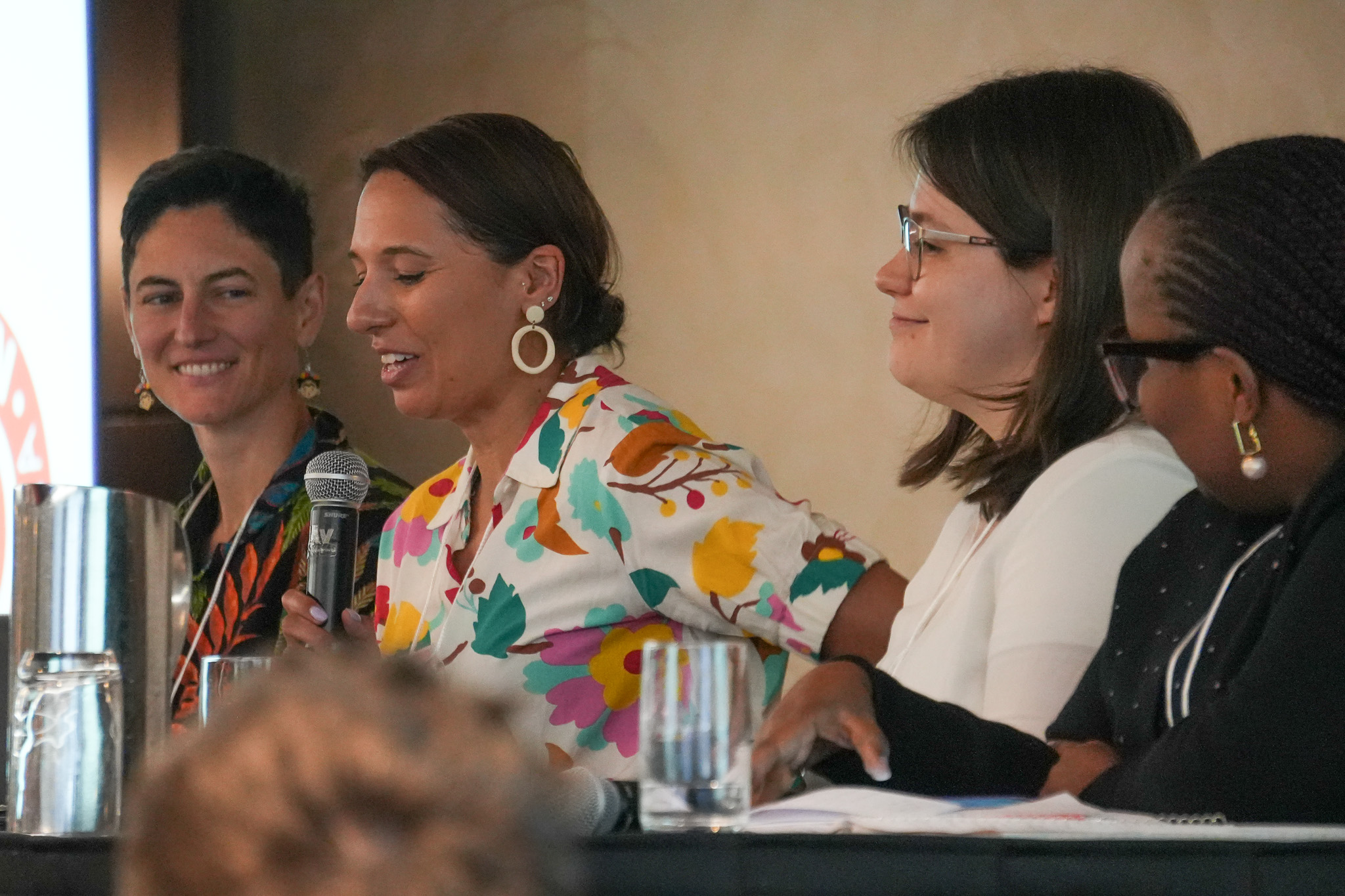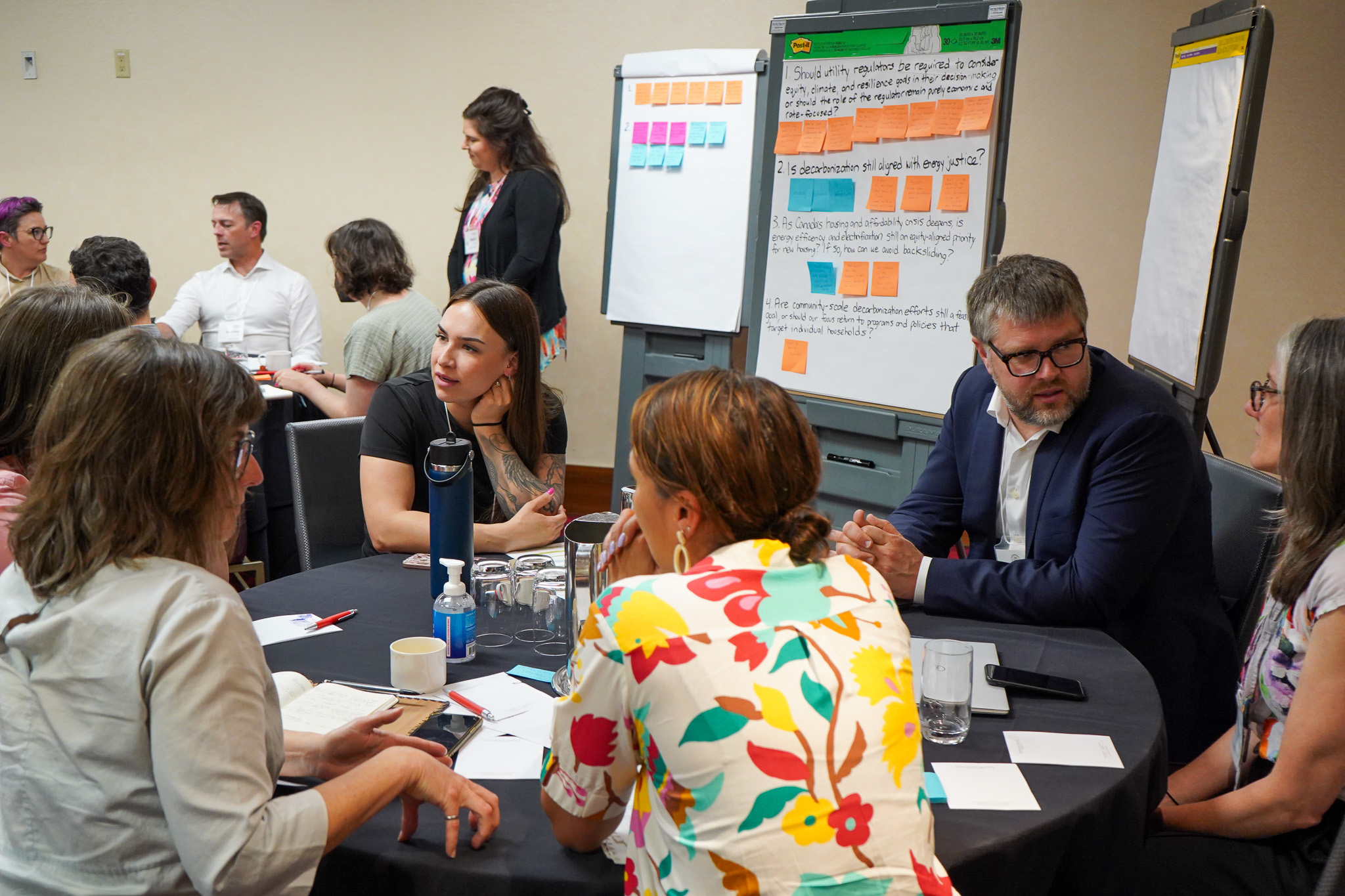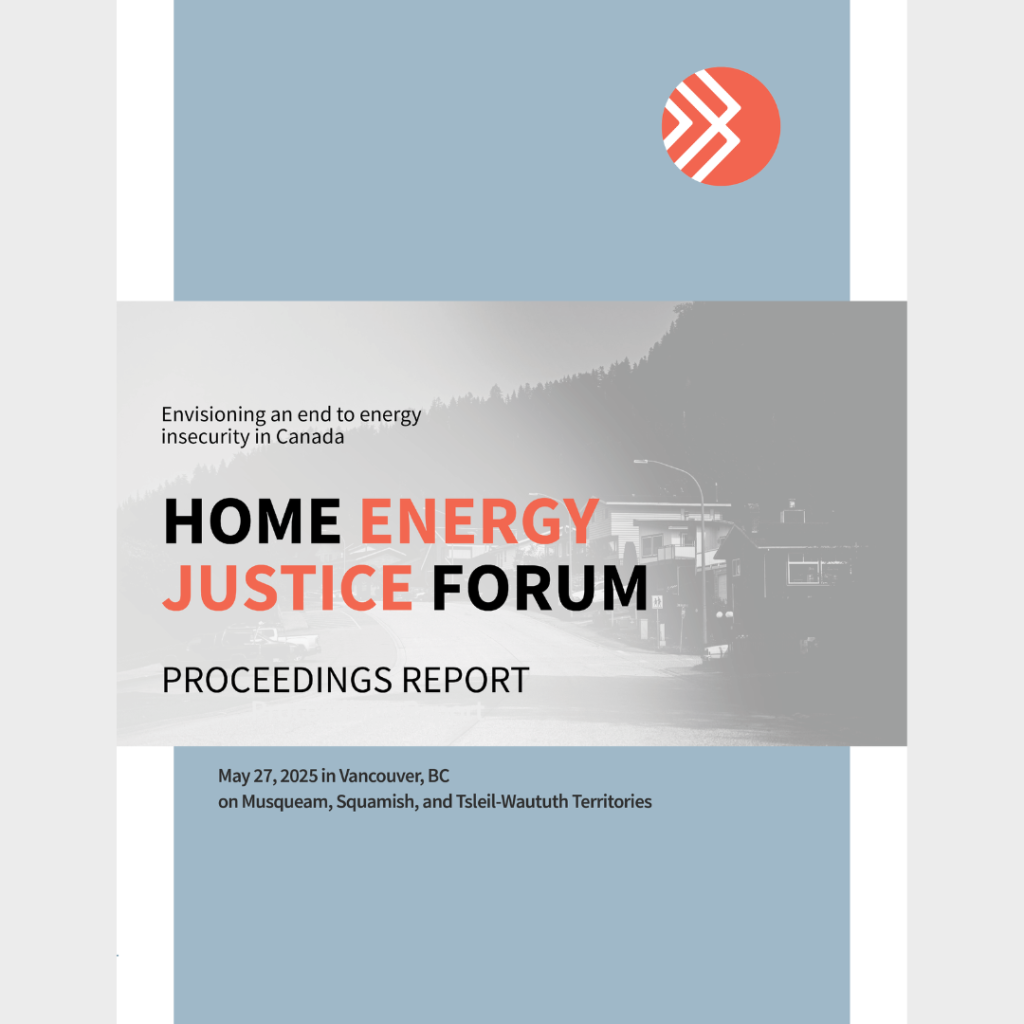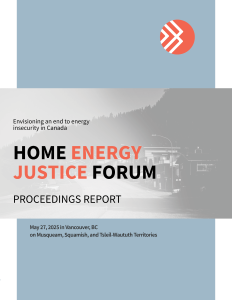Read the full Home Energy Justice Forum Proceedings Report (2025)
Summary
On May 27, 2025, Ecotrust Canada held its second Home Energy Justice Forum. Over 110 attendees came together in Vancouver, BC, on Musqueam, Squamish, and Tsleil-Waututh Territories, to envision an end to energy insecurity. The Forum focused on British Columbia, where low-carbon home retrofits, energy affordability, and resilience to extreme heat are increasingly seen as critical and holistic policy issues.
The Home Energy Justice Forum was an interactive all-day event, providing attendees the opportunity to connect and explore the latest research, policy progress, and lived experiences on the issue of energy insecurity. The event included sessions on equitable decarbonization across neighbourhoods, protecting tenants and vulnerable populations from extreme heat events, and supporting community-wide climate resilience initiatives.
The Central Issue
One million Canadian households experience energy insecurity, also called energy poverty, including over 250,000 households in BC. This means families are suffering from illness and stress caused by unhealthy temperatures and poor air quality in the home, a problem that is only getting worse as our summers get hotter and smokier. It also means that many people must choose between paying their utility bills or paying for rent and groceries. The most vulnerable households in Canada – including renters – face growing risks.
We believe that household energy security is possible in Canada when all households:
- can access essential home energy services like heating, cooling, cooking, and lighting without hardship;
- live in comfortable, healthy homes with affordable energy bills;
- use efficient, resilient, and low-carbon energy sources.

What We Heard
Key action items identified by Forum participants included:
Immediate Protections
- Regulate safe indoor temperatures in rental units, both provincially and municipally
- Deploy emergency cooling solutions in homes, such as window shades and air conditioners (or heat pumps if possible)
- Leverage climate and building data to prioritize the homes at greatest risk of overheating
Systemic Changes
- Convert most existing mechanical systems to heat pumps, and incorporate passive cooling measures in residential buildings
- Increase the stock of cooperative, non-profit, and public housing, and secure targeted, flexible, and long-term funding for this housing
- Support contractor training and capacity in rural areas that are underserved by key trades such as HVAC
- Develop an integrated utility resource and energy plan for BC, replacing the siloed approach currently taken by BC Hydro and FortisBC
- Align retrofit programs with climate action goals where possible, but recognize that improving public health and affordability can also be the primary objective
- Recognize safe and affordable housing as a human right, including the right to healthy indoor temperatures
Community Empowerment
- Tailor messaging and language to the needs and concerns of communities
- Shift retrofit program design and delivery to a model that is led and co-created by the communities these programs are intended to serve
- Ensure support for ongoing Indigenous-led decision-making in programs affecting Indigenous housing and energy
- Empower tenants with tools to report on and organize around unsafe housing conditions
- Increase funding and support for rural and Indigenous communities, and centre their unique context and needs, including skill training and retention
- Involve youth organizations such as Youth Climate Corps to install projects and retrofit buildings
- Transfer and share learnings from successful projects in rural, remote and Indigenous communities
- Secure targeted, flexible, and long-term funding for band-owned and non-profit housing
Our Next Steps
Following the publication of this Proceedings Report, Ecotrust Canada’s Energy team will take what we’ve learned from the Forum and use it to better inform our ongoing policy and research work in BC. We will continue to advocate for programs, policies, and funding that support vulnerable populations to move out of energy insecurity and advance energy justice. Our work for the remainder of 2025 includes:
Engaging with leading BC municipalities to advance a Right to Cooling and thermal safety regulations for vulnerable tenants; 38% of tenant households in BC live in unaffordable units – spending over 30% of their pre-tax household income on their housing (Source: Statistics Canada, 2021 Census)
Advancing an equitable decarbonization and climate resilience pilot project in a BC manufactured home park, following up on our research on this topic. Manufactured homes make up 4% of households in BC, and on average have 61% higher energy use per square foot than other dwelling types (Source: BC Hydro).
Supporting our Indigenous partner communities to complete energy-saving and climate-resilience retrofits, and advocating for program improvements that can make these projects more successful and scalable. Indigenous communities in BC often face energy costs that are double the Canadian household average. Ecotrust Canada has been working with Indigenous communities on retrofit projects since 2017, enabling over 500 households to save $12.5 million on energy costs, while eliminating over 18,000 tonnes of GHG emissions and providing lifesaving cooling during heat waves.
Delivering our Home Energy Savings Program to support hundreds of residents in northern coastal BC with free one-on-one home retrofit advice, helping them navigate energy-efficient upgrades.

Presentations and Panelists
The 2025 Forum hosted 23 speakers, including expert panelists from diverse fields, including the government, non-profit, housing, and energy sectors. The Forum also provided a venue to present several new pieces of research, including in-house reports on advancing thermal safety regulations for tenants and catalyzing retrofits in manufactured home parks (also known as mobile home parks). It also included research produced by UBC students in collaboration with Ecotrust Canada on equitable decarbonization pathways for BC’s homes and buildings.
After hearing from our expert panelists on these subjects, participants had the opportunity to workshop ideas and recommendations that surfaced, to refine them further, and to discuss their strengths and weaknesses. We found there was considerable alignment around the path forward, despite the very diverse background and fields of practice that attendees each brought to their tables. The themes and practices noted in this report were drawn from the notes of facilitated table discussions as well as questions and comments raised in the plenary by both speakers and participants.
Video recordings of the panel sessions are available here.
“Coming up with solutions that have input from these different areas can be really transformative and important and give people the opportunity to bring leadership back to their area of focus and sphere of influence.”
– Rowan Burdge, Executive Director, BC Poverty Reduction Coalition


